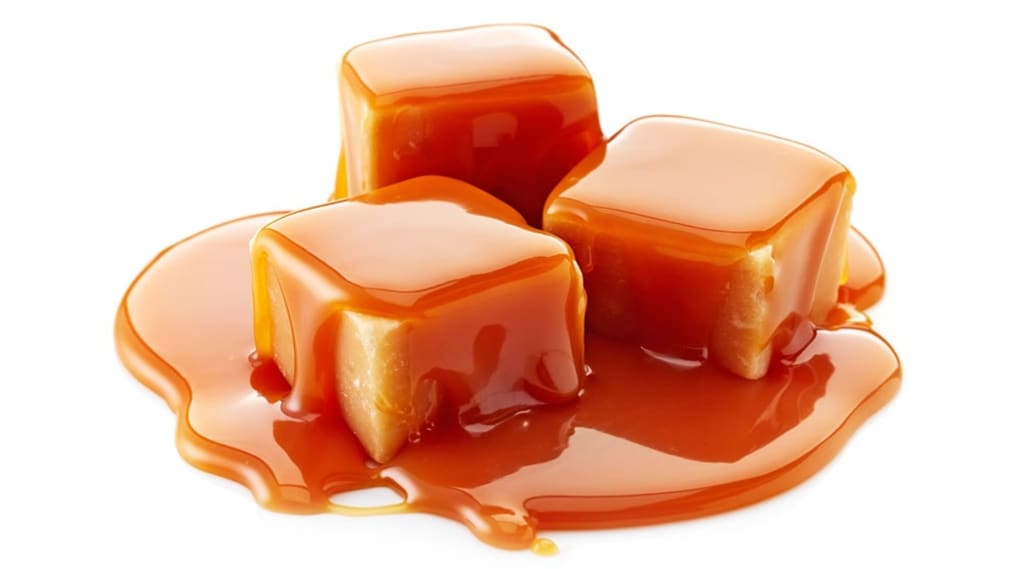Can Dogs Eat Caramel?
A Comprehensive Guide to Dogs and Caramel Consumption

No, dogs should not eat caramel. Caramel contains high amounts of sugar, which can lead to weight gain, obesity, dental issues, and other health problems in dogs.
Additionally, certain caramel products may contain toxic ingredients or pose choking hazards. It's best to prioritize your dog's health and provide them with treats specifically made for dogs that are safe and appropriate for their dietary needs.
While you may want to feed your dog a sweet treat like caramel, it's crucial to consider the potential risks and effects it may have on their health.
Let's dive deeper into this topic and learn more about the reasons and alternatives you should give to your dog.
Dogs and Caramel Consumption
Many dog owners wonder if it's safe to let their furry friends indulge in caramel. While a small amount of caramel may not be immediately toxic to dogs, it is essential to exercise caution. Here are some key points to consider regarding dogs and caramel consumption:
- Caramel contains a lot of sugar, which can lead to various health issues if consumed in excess by dogs.
- The sugar in caramel can cause an increase in blood glucose levels, potentially resulting in obesity, dental problems, and diabetes in dogs.
- Some caramel products may contain additional ingredients that are toxic to dogs, such as chocolate or xylitol, which can be extremely dangerous or even fatal to dogs if ingested.
Is Caramel Safe for Dogs?
While caramel is not toxic to dogs, it is generally recommended to avoid feeding them this sugary treat. Dogs do not require the same level of sweetness in their diet as humans, and their bodies may not process sugar as efficiently. Even small amounts of caramel can contribute to an unhealthy intake of sugar for your furry friend.
It's important to remember that dogs are unique individuals, and their tolerance to certain foods may vary. Some dogs may be more sensitive to sugar or have pre-existing health conditions that can be worsened by consuming caramel.
Therefore, it is best to err on the side of caution and refrain from giving your dog caramel.
Risks and Potential Dangers of Dogs Eating Caramel
Feeding your dog caramel can pose several risks and potential dangers. Here are some key considerations:
- Digestive Issues: Dogs may experience gastrointestinal upset, including vomiting, diarrhea, or stomach discomfort, when they consume caramel. This can be attributed to the high sugar content and the fact that dogs' digestive systems are not designed to handle large amounts of sugar.
- Obesity: Caramel is calorie-dense and can contribute to weight gain in dogs. Excessive sugar intake can lead to obesity, which in turn increases the risk of various health problems, including joint issues, heart disease, and diabetes.
- Dental Problems: The sticky nature of caramel can adhere to your dog's teeth, promoting the growth of harmful bacteria and potentially leading to dental issues such as cavities, gum disease, and tooth decay.
- Toxic Ingredients: Some caramel products, such as those containing chocolate or artificial sweeteners like xylitol, can be toxic to dogs. Chocolate is known to be poisonous to canines, and even small amounts can cause serious health complications, including seizures and organ failure. Xylitol, commonly found in sugar-free caramel, can also be extremely dangerous for dogs and can lead to a rapid drop in blood sugar levels, resulting in seizures or even death.
Specific Forms of Caramel and Their Effects on Dogs
Different forms of caramel can have varying effects on dogs. For example, caramel rice cakes are often considered a healthier alternative to traditional caramel treats. While they may contain less sugar, it's still important to remember that dogs should not consume large amounts of caramel, even in the form of rice cakes.
Similarly, caramel pudding, caramel cake, caramel dip, caramel nuts, and caramel fudge all contain high sugar levels that can be harmful to your canine companion.
What to Do If Your Dog Ate Caramel
If your dog accidentally eats caramel, it's crucial to take prompt action. Monitor your dog closely for any signs of distress or discomfort. Look out for symptoms such as vomiting, diarrhea, excessive thirst, lethargy, or changes in behavior. If you notice any concerning symptoms, contact your veterinarian immediately for guidance.
In most cases, if your dog ingested only a small amount of caramel, it may not experience severe issues. However, it's always better to be safe than sorry. Keep a close eye on your dog and provide plenty of fresh water to help flush out any excess sugar from their system. If your dog consumed a large amount of caramel, it's important to seek professional veterinary advice to ensure their well-being.
Alternatives and Safe Treats for Dogs
Rather than risking your dog's health with caramel, it's best to opt for safe and healthy treats specifically designed for dogs. There are numerous commercially available treats that are formulated to meet the nutritional needs of dogs while also satisfying their taste buds.
Look for treats made with wholesome ingredients and without any harmful additives or excessive sugar content. Some healthy alternatives to caramel treats include dog-friendly biscuits, dental chews, carrot sticks, apple slices (without the caramel coating), or homemade treats using dog-safe ingredients.
Caramel Substitutes for Dogs
If you still wish to offer your dog a sweet treat occasionally, there are safe caramel substitutes available specifically formulated for dogs. These substitutes are usually made with dog-friendly ingredients and are free from harmful additives or excessive sugars.
However, it's important to remember that even with these substitutes, moderation is key. Always consult with your veterinarian before introducing any new treats or substitutes into your dog's diet to ensure they are suitable for your individual pet.
Conclusion: Should Dogs Eat Caramel?
In conclusion, we do not recommend giving your dogs caramel or any sugary treats meant for human consumption. The high sugar content in caramel can lead to weight gain, dental issues, and other health problems in dogs.
Additionally, certain caramel products may contain toxic ingredients or pose choking hazards for dogs. It's crucial to prioritize your dog's health and well-being by providing them with a balanced and appropriate diet, including treats specifically made for dogs.
By avoiding caramel and opting for safe and healthy alternatives, you can ensure that your furry friend enjoys a happy and healthy life.
Frequently Asked Questions
Can I give my dog a piece of caramel popcorn?
No, it is not recommended to give your dog a piece of caramel popcorn. Popcorn often contains additives like butter, salt, and artificial flavorings that are unhealthy for dogs.
Additionally, the caramel coating itself is high in sugar, which can lead to weight gain, dental issues, and other health problems in dogs. It's best to avoid giving your dog any type of popcorn, especially those with sugary or flavored coatings, and instead opt for dog-friendly treats that are specifically formulated to meet their nutritional needs.
Can dogs eat apples and caramel?
Dogs can eat plain apples as they are a healthy and safe snack for them. However, caramel should be avoided as it contains high sugar content that can be harmful to dogs. It's best to offer your furry friend plain, sliced apples without any caramel topping.
What happens if my dog eats caramel apples?
If your dog eats a caramel apple, there are potential risks involved. The caramel coating can be high in sugar and may contain additional ingredients like chocolate or nuts, which are toxic to dogs.
Depending on the amount consumed and your dog's size, they may experience symptoms such as upset stomach, vomiting, diarrhea, or even more severe issues.
Contact your veterinarian for guidance if your dog ingests a caramel apple.
What happens if a dog eats chocolate and caramel?
If a dog eats chocolate and caramel, it can be dangerous for its health. Chocolate contains theobromine, which is toxic to dogs, and caramel adds extra sugar. The combination can lead to various symptoms such as vomiting, diarrhea, rapid breathing, increased heart rate, tremors, seizures, and in severe cases, it can be life-threatening.
It's essential to seek immediate veterinary attention if your dog ingests chocolate and caramel.
What if my dog ate caramel candy?
If your dog eats caramel candy, it can pose risks due to the high sugar content and potential additional ingredients. Dogs may experience digestive issues like upset stomach, vomiting, or diarrhea.
Depending on the size of the dog and the amount of caramel candy consumed, there is a risk of pancreatitis or other serious complications.
Contact your veterinarian for guidance and monitor your dog for any concerning symptoms.
What do I do if my dog ate caramel?
If your dog ate caramel, monitor them closely for any signs of distress or discomfort. Look out for symptoms such as vomiting, diarrhea, excessive thirst, lethargy, or changes in behavior.
If you notice any concerning symptoms or your dog consumed a large amount of caramel, contact your veterinarian for professional advice.
They will provide guidance based on your dog's size, the amount ingested, and any potential risks involved.
Can dogs eat caramel and cheddar popcorn?
It's best to avoid giving caramel and cheddar popcorn to dogs. Caramel popcorn contains high levels of sugar and potential additives that are unhealthy for dogs.
Cheddar popcorn may have excessive salt and artificial flavorings that can also be harmful. It's important to prioritize your dog's health and offer them dog-friendly treats instead, specifically formulated to meet their nutritional needs.
About the Creator
Typical Dude
Just your average guy navigating life's twists and turns. AI Enthusiast, good vibes, and terrible jokes. Stumbling through this adventure called existence. 🌍✌️






Comments
There are no comments for this story
Be the first to respond and start the conversation.